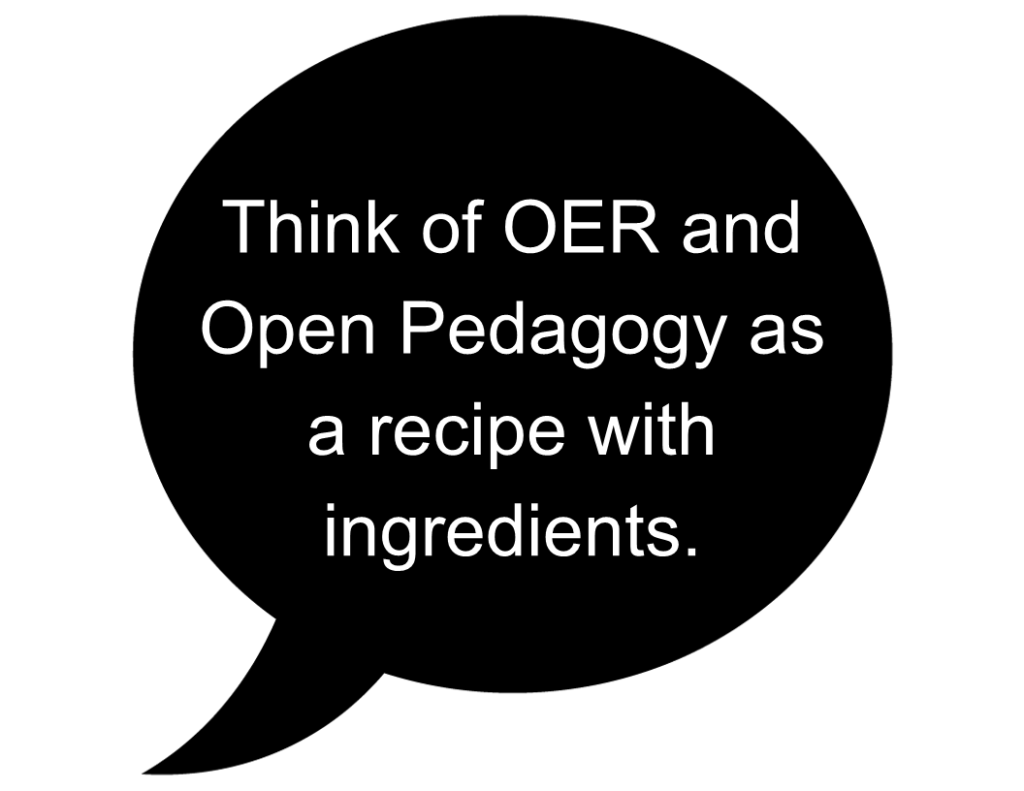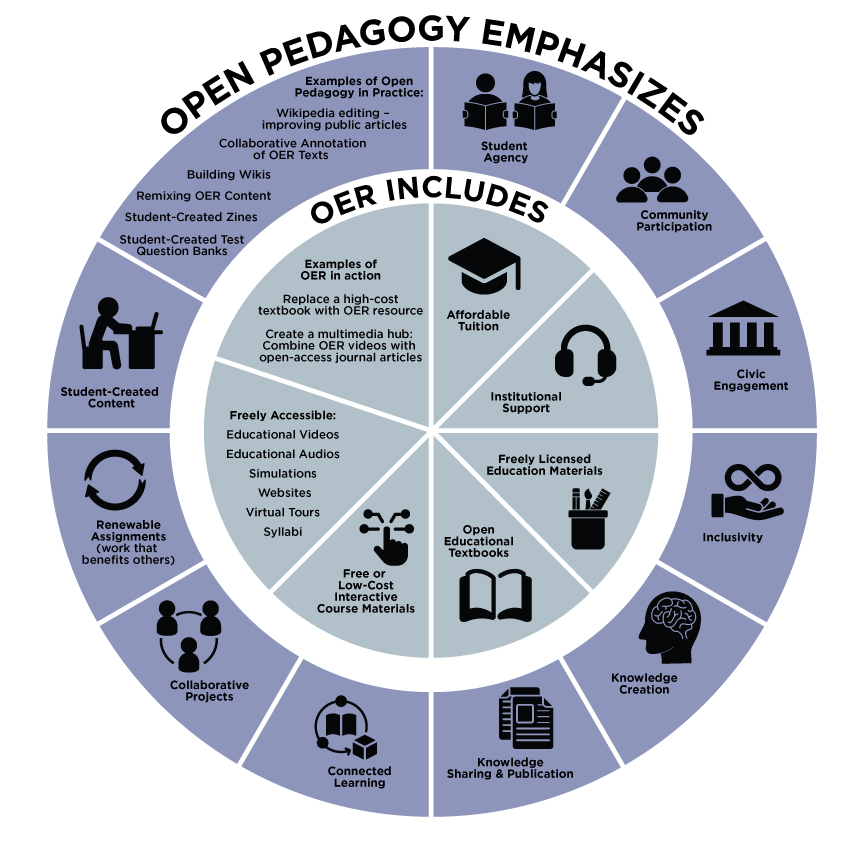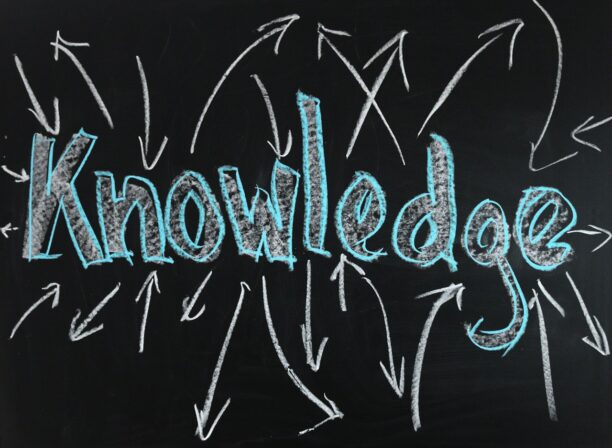Author: Dr. Denise Lowe, University of Central Florida
Editors: Dr. Florence Williams & Bren Bedford, University of Central Florida
Dear ADDIE,
I am an instructional designer at a large institution, and we assist faculty in understanding the differences between Open Educational Resources (OER) and Open Pedagogy for use in their online and blended course designs. I have found that many of our instructional designers are unsure of how these two concepts work together in the OER environment. Can you clarify these distinctions and offer some suggestions for the use of Open Pedagogy?
Signed,
Mystified in OER-Land

Dear Mystified,
This is a great question to address since the two terms are often used interchangeably, but they are not the same. Open Educational Resources (OER) refers to freely accessible, openly licensed educational materials that can be used, adapted, and redistributed with minimal or no restrictions (UNESCO, 2019). As Paradiso (2023) notes, this concept has been formally defined by numerous organizations including UNESCO, SPARC, and the Hewlett Foundation, and is regularly discussed at events such as the Open Education Conference and Open Education Week. Open Pedagogy involves activities that engage students in creating knowledge, often using OER – although this is not a requirement. As such, OER is the “what” and Open Pedagogy is the “how.”
Think of OER and Open Pedagogy as a recipe with ingredients. They work together but serve distinct roles. The key traits of OER as the recipe – the “what” – are free or low-cost resources for students and are licensed under Creative Commons (e.g., CC BY). Though the cost may vary among institutions, “low-cost resources” generally implies a significantly reduced price for course materials. Some examples of OER are OpenStax textbooks, MIT OpenCourseWare, and Pressbooks.
In contrast, Open Pedagogy are the ingredients – the “how” – a teaching approach that empowers students to co-create knowledge. Sometimes, this uses OER materials to do so. A pedagogical approach is about process, not just content. Its key traits include students becoming creators of knowledge and content with an emphasis on collaboration and public sharing. Some examples of Open Pedagogy are renewable assignments and student-authored case studies, possibly created through an activity of building wikis or remixing existing OER.
Excelsior University provides some great information on the characteristics of renewable assignments using tools such as Wikipedia, Hypothes.is, Padlet, and Google Docs, as well as some assignment samples. The diagram below displays the connection between OER and Open Pedagogy and some examples of their use:

Resources to Get Started
| For OER | For Open Pedagogy |
|---|---|
| OER Commons | Open Pedagogy Notebook |
| MERLOT | A Guide to Open Pedagogy |
| LibGuides Community (search OER) | Renewable Assignments Toolkit |
| UCF Open Educational Resources (OER) Starter Guide | OER Starter Kit for RTC: Open Pedagogy |
What other ideas or plans for OER and Open Pedagogy have you applied or are exploring at your higher education institution? Please share your thoughts with our TOPkit community on LinkedIn!
References
Creative Commons. (2025). About CC Licenses. https://creativecommons.org/share-your-work/cclicenses/
Excelsior University. (August, 2024). Course development toolkit: Renewable assignments.
https://library.excelsior.edu/c.php?g=1361097&p=10051885
Hewlett Foundation. (2025). Open education. https://hewlett.org/strategy/open-education/
MIT OpenCourseWare. (2025). https://ocw.mit.edu/
Open Education Conference. (October, 2024). https://opened24.sched.com/
Open Education Week. (February – March, 2025). https://oeweek.oeglobal.org/
OpenStax. (2025). Learning resources for all! https://openstax.org/
Paradiso, J. (April, 2023). Open educational resources: Finding a ‘local’ solution to a ‘global’ problem. TOPkit Digest. Retrieved from TOPkit website:
https://t.e2ma.net/webview/4fnhx0ecdb29fc9b0bdb708df43283a827b9ad
Pressbooks. (2025). Discover user-friendly digital publishing. https://pressbooks.com/
SPARC. (2025). Open education. https://sparcopen.org/open-education/
UNESCO. (2025). Open Educational Resources.
https://www.unesco.org/en/open-educational-resources?hub=785
Wiley, D. (2013). What is Open Pedagogy? https://opencontent.org/blog/archives/2975
